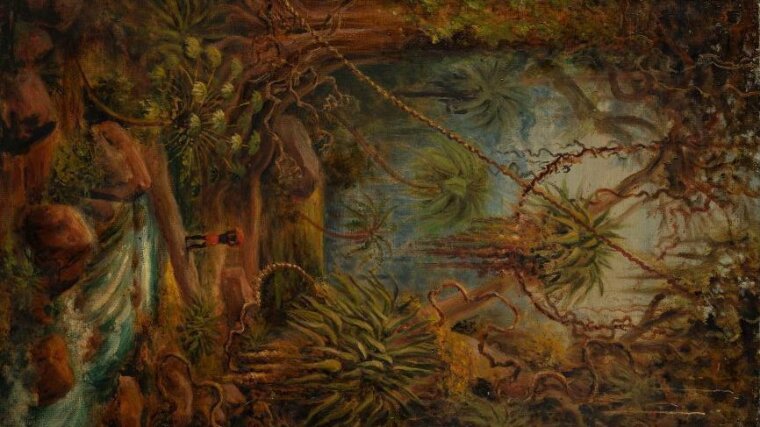
- Ernst Haeckel
- Tagungen
- Wissenschaftsgeschichte
Meldung vom:
Call for Papers:
Ernst Haeckel Postcolonial: New Perspectives on his Life and Work
March 20 – 22 2024
Ernst-Haeckel-Haus, Friedrich Schiller University Jena
Organized by the Ernst-Haeckel-Haus at the Friedrich Schiller University Jena in cooperation with the project “Ernst Haeckel (1834-1919): Letters Edition” and the Center of Science Studies of the Deutsche Akademie der Naturforscher Leopoldina e. V. – German National Academy of Sciences
Ernst Haeckel (1834-1919) is one of the most controversial scientists of his era. Well-known as a supporter and popularizer of Darwin’s theory of evolution in Germany, he is admired for his artwork. But he is also remembered as a prominent representative of nineteenth century social darwinism and scientific racism. While some even described him as a forerunner of the Nazis, others portrayed him as progressive figure who fought against religious dogmas and for a materialist worldview. These multiple, contested and often contradictory images of Haeckel refer to different historiographical traditions. They reflect the diversity of attempts to apprehend Haeckel’s contribution to the scientific, political, artistic, and philosophical transformations of the nineteenth and twentieth centuries. The aim of this international workshop is to discuss existing scholarship and initiate new research on the multiple facets of Haeckel’s work. We seek to explore new ways of interpreting and contextualizing Haeckel’s work in light of new historiographical approaches and current public debates.
Some guiding questions and topics for contributions are:
- Haeckel’s science and art in light of current debates on the “Anthropocene” and colonialism: Ecological concerns in the age of the Anthropocene, but also new debates on colonialism, racism as well as postcolonial theories invite to investigate Haeckel’s science and art from new perspectives. Given the attention paid to colonialism in recent years, it comes as a surprise that Haeckel’s zoological research, paintings, and travels have never been analyzed from a postcolonial perspective. To what extent did German colonialism shape his science and racism? How did his research trips in various regions of the world contribute to colonial politics and imperialist ideology? The case of Haeckel, known for having introduced the word “ecology”, also suggests investigating interrelations between colonialism, evolutionism and the rise of ecology.
- Towards a broader picture of Haeckel’s science: Scholarship on Haeckel has tended to focus on his evolutionary biology. His heredity and cellular biology as well as his numerous sociopolitical analogies and metaphors in contrast have received less attention. New approaches to these important aspects of 19th century biology can open up novel views on Haeckel’s scientific work.
- Haeckel’s work in the age of secularism: New literature on science and religion as well as on the “Kulturkämpfe” in the nineteenth century has changed our understanding of secularism in this era. To what extent does this literature propose new possible interpretations of Haeckel’s work or of his role in the history of secularism?
- A further promising topic for the workshop is the reception of Haeckel’s work in various fields of knowledge and outside Germany. Haeckel’s popular books have been translated in more than 30 languages. How to account for this wide reception? What stories can be told about Haeckel’s legacy?
Interested scholars are invited to send title and abstract in English (250 words max.) accompanied by a short biography to ernsthaeckelhaus@uni-jena.de by 30 September 2023.
We anticipate being able to provide train or airfare at ordinary economy rates (2nd class) and to cover accommodation for those invited to give a paper.
Kontakt:
Dr. Florence Vienne
florence.vienne@uni-jena.de